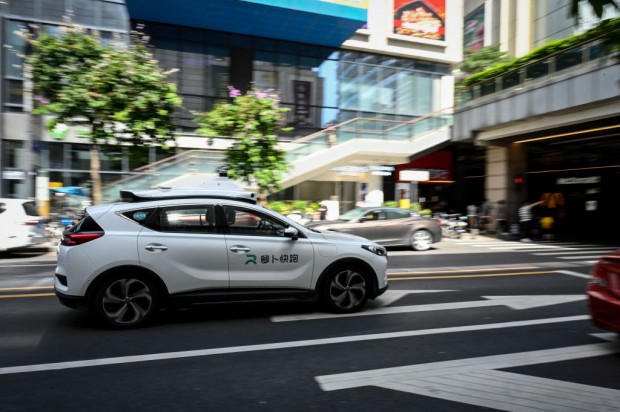Baidu’s Robotaxi Silver Lining: Taxi Innovation Brings Convenience But a Threat to Traditional Ride-Hailing Taxi Job Security
By Thea Felicity
Jul 11, 2024 11:41 AM EDT
Jul 11, 2024 11:41 AM EDT

(Photo : JADE GAO/AFP via Getty Images)
China's push to develop robotaxis is gaining traction while sparking concerns among traditional taxi drivers about job security, according to CNBC.
The rise of Baidu's robotaxi unit, Apollo Go, has been particularly notable. It has become a top trending topic on Chinese social media platforms like Weibo. In Wuhan, Baidu operates fully driverless vehicles 24/7, and the company plans to expand its fleet to 1,000 vehicles by the end of the year.
More than Wuhan, local governments in China are increasingly supporting robotaxi initiatives, with major cities like Beijing, Shanghai, and Guangzhou permitting the operation of autonomous taxis.
READ MORE: Baidu's Driverless Vehicle Hits Pedestrian in China; Public Largely Backs the Car Maker
However, this rise in China's robotaxi popularity has also led to calls for restrictions from traditional taxi companies, who also feel the economic impact.
As new ride-hailing companies emerge, some local governments, like those in Guyuan and Guiyang, have halted new ride-hailing licenses to prevent market oversaturation.
Citizens' support of Robotaxi in China is no surprise since the public largely backed Baidu in a recent pedestrian hit-and-run reported by VCPost.
Fortunately, as of the end of May, China had more than 7 million registered ride-hailing drivers, an increase from the 3.51 million reported in July 2021. This surge has been met with both enthusiasm and anxiety, as traditional drivers fear the loss of jobs to autonomous vehicles.
However, considering the implementation of robotaxis in recent weeks, the country has yet to report the impact of these new driverless vehicles on drivers. This concern is compounded by the slowdown in wage growth in China since the pandemic, which has caused financial difficulties for many workers, including taxi drivers.
Chinese authorities have yet to release plans addressing how autonomous vehicles can maintain job security.
READ NEXT: Elon Musk Wants to Deploy Tesla Robotaxis in China: Reports
© 2024 VCPOST, All rights reserved. Do not reproduce without permission.
Join the Conversation